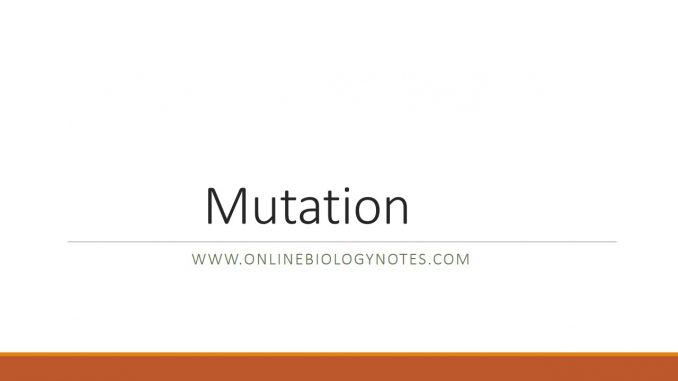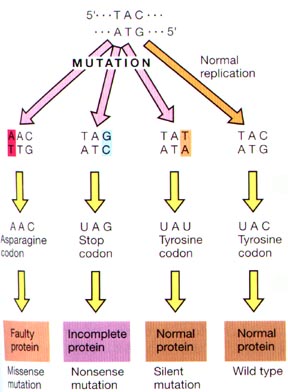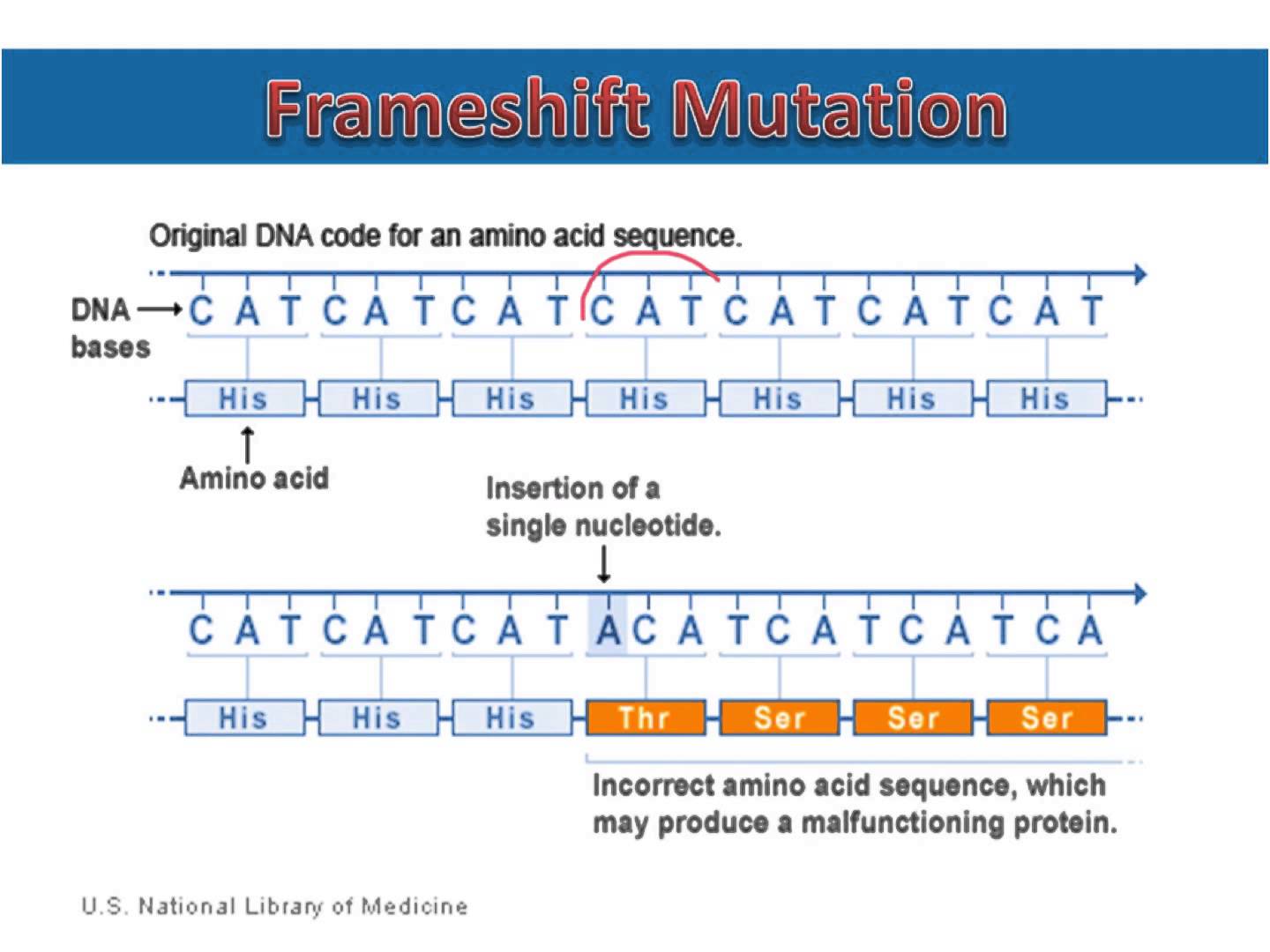
Mutation and types of mutation
Mutation
- Mutation is the change in sequence of nucleotide of DNA.
- Change in sequence of nucleotide brings sudden change in morphological characteristics of an organism. If such change are heritable, then it is called as mutation.
- So, mutation is defined as any heritable change in the sequence of nucleotide of DNA.
Organism with mutation is called mutant while the organism without mutation is wild type.
Types of Mutation
Based on change in genotype and phenotype, mutation are of two types
- Point mutation
- Frameshift mutation
1. Point mutation
- It occurs as a result of replacement of one nucleotide by other in specific nucleotide sequence of gene. Point mutation brings little phenotypic change as compared to frameshift mutation.
Point mutation are two types based on the base pair substitution
i) Transition:
- It is the point mutation occur by substitution of one purine by another purine or one pyrimidine by another pyrimidine.
ii) Transversion:
- It is the point mutation occur by substitution of purine by pyrimidine and vice versa.
Based on transcriptional property point mutation are of three types.
i) Silent mutation
ii) Missense mutation
iii) Non-sense mutation
Figure: types of point mutation
i) Silent mutation:
- It is also known as neutral mutation.
- It is the mutation in which mutated codon codes same amino acids as the original codon. Since the aminoacid is same as original one, it does not effects the structure and composition of protein.
- Silent mutation causes phenotype of bacteria remain similar to that of wild type.
ii) Missense mutation:
- In this mutation mutated codon codes different amino acid (other than original). Since new aminoacid coded by mutated codon is altered, the protein formed from it is also altered. Such protein can be less active or completely inactive.
- If altered aminoacids lie on active site of protein then such protein become completely non-functional.
- The missense mutation causes phenotypic change in organism.
iii) Non sense mutation:
- Mutation in which altered codon is stop codon or chain terminating codon, such mutation is called non-sense mutation.
- Non sense mutation causes incomplete synthesis. Such incomplete protein is always non-functional.
- Non-sense mutation bring greatest change in phenotype of an organism.
2. Frameshift mutation
- It occurs as a result of addition or deletion of nucleotide in the sequence of DNA. Addition or deletion of nucleotide causes shift of the reading frame of mRNA.
- In a mRNA each codon is represented by three bases without punctuation and insertion or deletion of a nucleotide changes the entire frame. So frame shift mutation bring greater phenotypic change than point mutation.
- Insertion or deletion of one or two base pair of nucleotide causes shift in frame. However, insertion or deletion of three base pair adds or remove a whole codon, this results in addition of removal of single amino acid from polypeptide chain.

